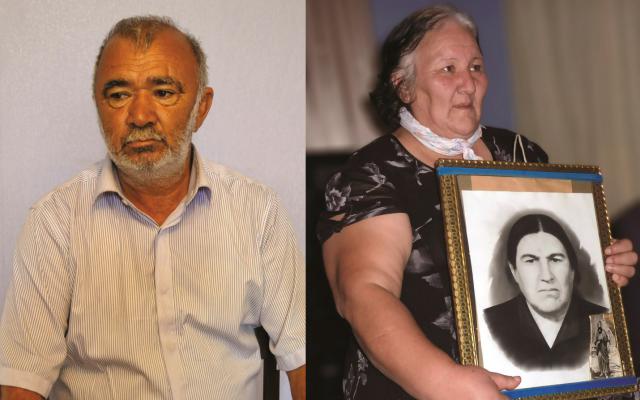
The accounts of Nazile khanim and Fuzuli tumbled over each other in torrents of memories; this presentation reflects the way the stories were told. There was still a lot of anger as Fuzuli vented his frustration that nothing has been done about the horrors inflicted on the people of Khojaly and that some of the perpetrators now hold positions of power and influence.
That night searchlights were switched on, it was like daylight...The Armenians claimed the corridor was for safety and people had to get out any way they could...
The gas went off when heavy military vehicles broke the pipeline and shooting started. Houses on the edge of the town were on fire... We couldn't take anything, we left in the clothes we were wearing, some were barefoot. Khojaly was surrounded by the Armenians; there was only one way out to Aghdam, over the river and through the forest, we couldn't take the wounded. The missiles made the forest and snow glow. Clothes froze and became too heavy to carry... There was no mercy for Khojaly, all we could see was bodies all around... By God's will, a miracle, I got to Aghdam.
The shooting was so intensive it was impossible to take the old and the wounded...To cross so many barriers and carry bodies? Then you'd be shot - our only aim was to escape...
My mother-in-law, all my mother's relatives, her brother, were all captured... My mother was swapped after three days...My mother was held in bad conditions, beaten, no food or drink... She was held in Askeran and was ill for ever after that...
There were negotiations and bodies were exchanged... I took part in washing the bodies...They had tortured them - burned black, wrapped in wire. Three bodies were separated from their heads. They were barely recognisable, but we matched them somehow. We couldn't bury them until their parents came to Aghdam, we matched the heads and bodies and wrapped them. Their families saw their bodies and were humiliated...There was a three-year-old girl; they had killed her and cut all her body.
My (Fuzuli's) father was captured by the Germans in the Great Patriotic War (World War II) and was not treated as badly...
I have four children (then) I had everything for their dowries, to marry - it was all left behind.
Interviewed by Ian Peart
Story source: Book “Khojaly Witness of a War Crime - Armenia in the Dock”,
published by Ithaca Press, London 2014
